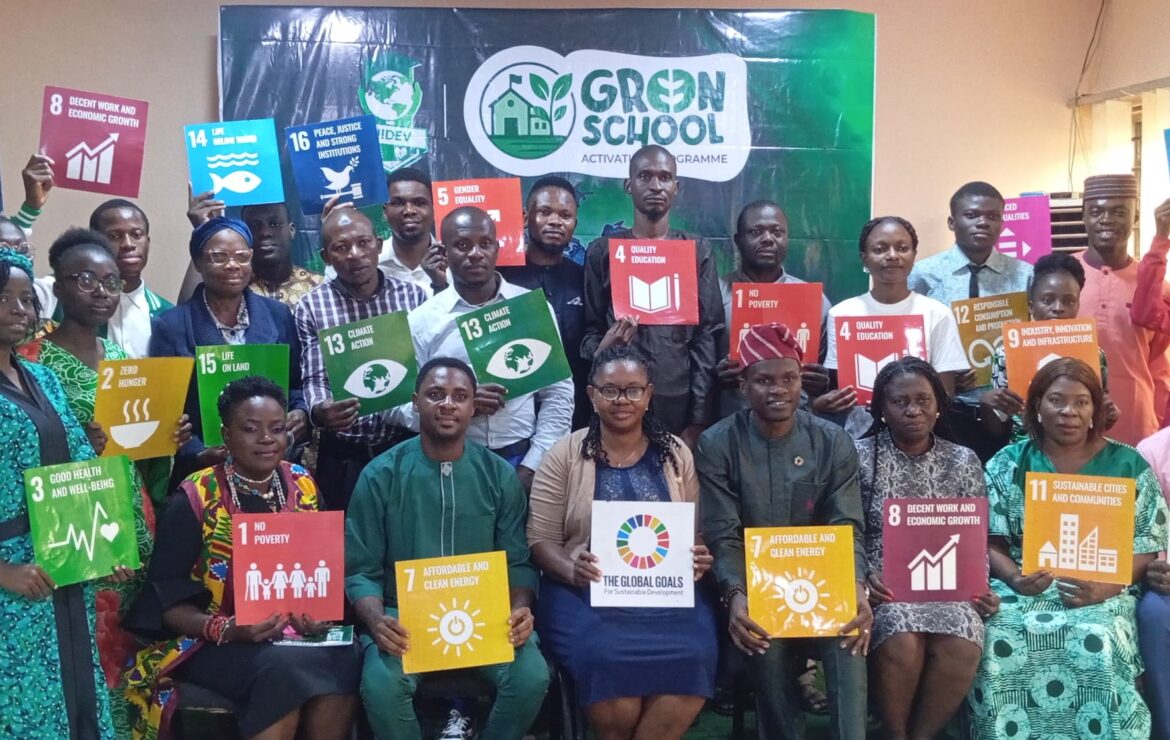JUST IN: Experts Push for Green Education Reforms in Nigeria’s Schools

JUST IN: Experts Push for Green Education Reforms in Nigeria’s Schools
Education experts have called for reforms in Nigeria’s school curricula to embed environmental sustainability knowledge and foster eco-friendly practices among students.
The call was made at the Green School Activation Summit, hosted by the Advance Initiative for International Development (AIIDEV) at the Centre for Sustainable Development (CEDEV), University of Ibadan, Oyo State.
The summit also marked the launch of the Green School Activation Programme, a pioneering initiative designed to integrate green education and sustainability practices into secondary schools in Nigeria and across Africa. The program, already piloted in the Federal Capital Territory, Lagos, and Oyo State, has engaged over 100 schools and trained more than 300 teachers. It promotes a whole-school approach focused on green learning environments, school gardening for food security, climate education, eco-friendly infrastructure, innovation, and circular economy principles.
Delivering the keynote on Promoting Green Education and a Whole School Approach in Nigeria, the Dean of the Faculty of Renewable Natural Resources, University of Ibadan, Prof. Adejoke Akinyele, lamented Nigeria’s deepening environmental crises, such as rapid deforestation, pollution, and climate change. She stressed that education remained central to raising environmentally responsible citizens.
“Green education integrates environmental, economic, and social sustainability into the core of learning,” Akinyele said. She explained that the Whole-School-Approach model—which covers curriculum reform, eco-friendly facilities, school culture transformation, community engagement, and behavioral change—is key to embedding sustainability in education.
According to her, the initiative also aligns with UNICEF’s Green School Programme by encouraging schools to create green spaces, develop resilient infrastructure, and support student-led climate actions. “Schools can set up eco-clubs, plant trees, adopt waste management systems, and embrace renewable energy as practical steps,” she added.
Regional Lead of AIIDEV Africa, Emmanuel Ola-Olowoyo, reaffirmed the group’s commitment to driving a nationwide movement for green education. “We are providing seeds, resources, and expert-led training for teachers. Each school should designate at least two agriculture teachers to lead sustainability efforts. We plan to monitor progress through annual reports and introduce competitions for the most eco-active schools,” he said.
Other speakers also shared practical strategies. Founder of the Waste Museum, Ibadan, Mrs. Adejumoke Olowokere, explained how schools can convert food waste into compost and repurpose recycled materials like Trawap as teaching aids.
Executive Director of Plogging Nigeria, Mr. Mayokun Iyaomolere, encouraged schools to “start with small steps, conduct sustainability audits, and prioritize healthier, eco-friendly teaching environments.”
Also speaking, the Founding Director of the Centre for Housing and Sustainable Development, University of Lagos, Prof. Timothy Nubi, highlighted the importance of green education in tackling Nigeria’s environmental challenges. Meanwhile, the National Focal Point of the Greening Education Partnership, Rahman Mogaj, unveiled the National Network of Accredited Green Schools, a certification scheme designed to reward sustainable schools and connect them with resources and international collaborations.






